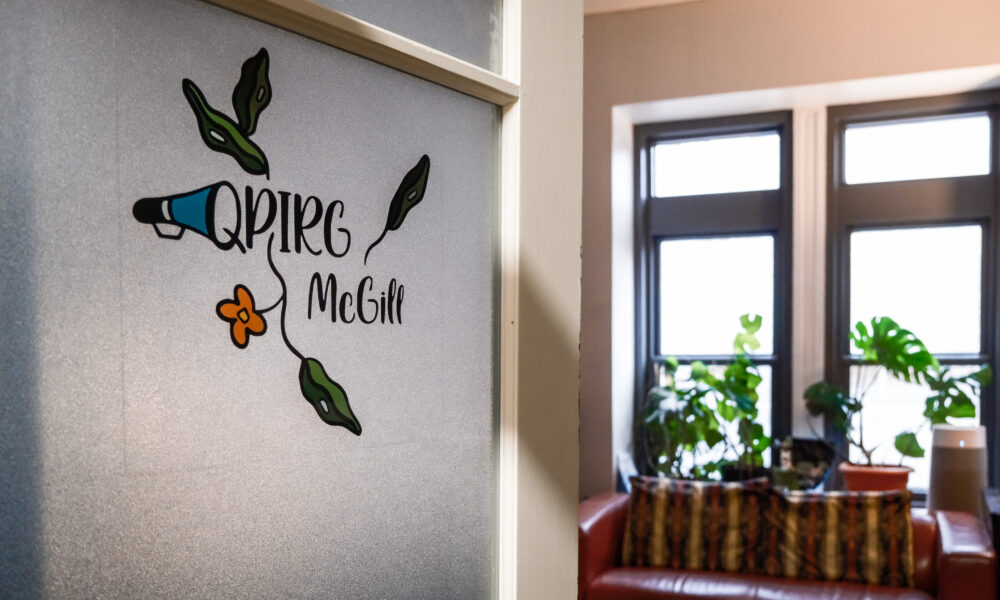The Quebec Public Research Interest Group at McGill (QPIRG-McGill) hosted a workshop called “What does homelessness look like in our communities?” on March 25 as part of the annual Spring into Action series. Robbie Madsen headed the discussion, speaking about the 15 years of homelessness they experienced while travelling across Canada.
“It’s important for people to come out to listen to the stories [of homelessness],” Madsen said. “Because that’s the only way people’s minds can be elevated to higher levels of thinking.”
The programming challenged the preconception that poverty is a requirement for homelessness. Madsen and other participants described how the rising cost of living in many cities is inflating unhoused populations, regardless of income level.
“Some people think that homelessness means jobless[ness], and that’s not true. We’ve done research that shows that it’s nowhere close to being true, especially in the States,” Madsen said. “There [are] people that earn $50,000 USD a year that are in the shelters because they can’t afford their rents anymore.”
This trend is also observed in Canada; Madsen described Toronto as a “tent city,” where people with full-time jobs comprise around 20 per cent of the city’s unhoused population. Although Montreal’s equivalent statistic is only three per cent in comparison, this number may increase as the cost of living continues to skyrocket.
In an interview with The Tribune, Carl Bystram, a QPIRG-McGill organizer, recognized this growing income insecurity and stressed how important it is to include speakers like Robbie Madsen in the conversation.
“Homeless people are oppressed,” Bystram said. “There’s a housing crisis in Montreal right now, and a lot of people are feeling it. I think […] more and more people are finding themselves on the street, and the people out on the streets are very misunderstood by society.”
In an email to The Tribune, Lil Borger, an independent community organizer in Milton-Parc, highlighted simple ways that McGill students can support the unhoused community.
“It’s a bit cliche, but the easiest thing students can do to support the unhoused community is to treat them like people,” Borger wrote. “Make eye contact, smile, and if you have the time/capacity, see if there’s something they need that you could help with.”
Bystram shared the same sentiment, believing more empathetic actions from all people—not just students—can help improve the lives of unhoused community members.
“There are a lot of organizations that are working [to support the unhoused] in the neighbourhood, so just get involved,” Bystram said. “A part of it is just having more conversations on how it is happening, having humanizing conversations, just talking to people in your neighbourhood who are experiencing hardship.”
The workshop identified homelessness as a systemic issue that has deep historical roots, especially for Indigenous peoples. Madsen themselves experienced this, describing the irony of being unhoused and Cree, as their ancestors thrived on the very same land.
“How can someone be homeless in their own homeland?” Madsen asked the audience. “I’m not allowed to live in what my ‘normal’ house would be. It’s been that way for 200 years in Canada. I’m still not allowed, even though we’ve acknowledged the Indian residential schools and the Sixties Scoop and the murdered, missing Indigenous women and all kinds of stuff.”
Borger echoed that while students can help address the unhoused crisis, institutions like McGill have more power and resources to tackle this systemic issue.
“A question I always ask students is: How is it that there are so many unhoused individuals spending time on the street in Milton-Parc, and yet you never see any of them on the McGill campus space?” Borger queried. “McGill definitely has a lot of power to help support the unhoused community, and I do not think they do anywhere near enough. There should be consistent and ongoing educational opportunities provided by McGill to connect students with the community around McGill to learn, get involved, and support.”









